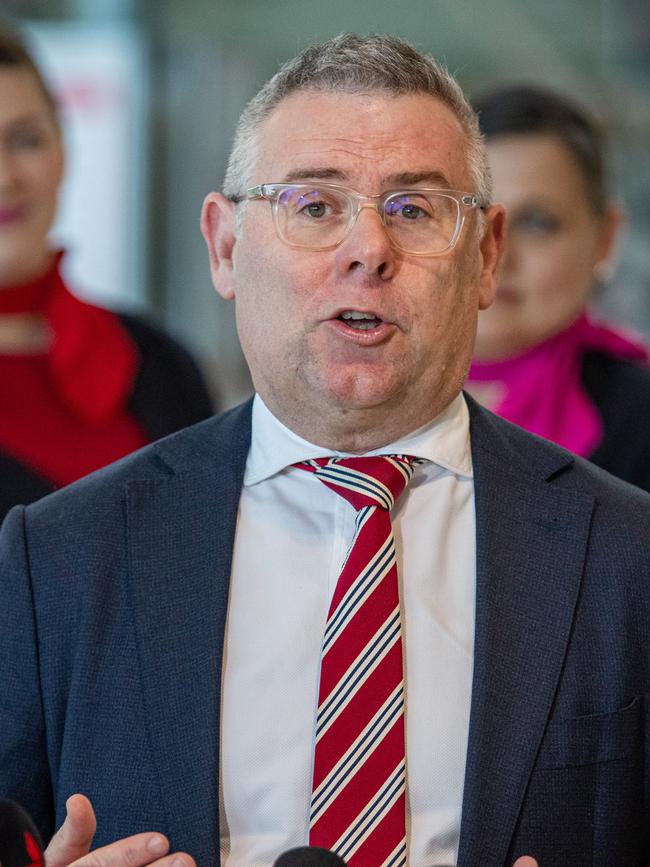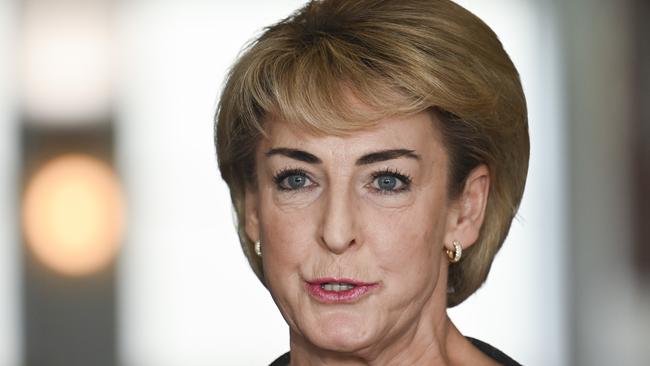Coalition blames Labor’s IR changes for surge in days lost to industrial action since 2022
The Coalition blames Labor’s new workplace laws for making it “harder to do business” in Australia.

National
Don't miss out on the headlines from National. Followed categories will be added to My News.
EXCLUSIVE
More than 293,000 working days have been lost to industrial action since the Albanese Government was elected, as the Coalition blames new workplace laws for making it “harder to do business” in Australia.
Labor has rejected the opposition’s claim of a rise in strikes, as on average the number of days lost to industrial disputes as a percentage of Australia’s growing workforce has declined since 2022.
There have been at least 484 industrial actions since Labor’s election win, up from 407 over the three years of the Morrison Government, according to Coalition analysis of Australian Bureau of Statistics data.
The total number of days lost to strike action rose by 34.7 per cent from 217,600 under the last Coalition government to 293,200 since the June 2022 quarter to March this year.
The Covid-19 pandemic likely skewed Morrison-era data, but the Coalition has also highlighted the average over their nine years in office was about 23,600 work days lost to strikes every quarter, compared to Labor’s 36,700.

However accounting for the almost three million people who entered the workforce over this time, the number of days lost to strike has gone from 2.4 days per 1000 workers under the Coalition down to just 1.9 days under Labor, according to the Department of Employment and Workplace Relations.

Employment and Workplace Relations Minister Murray Watt said despite the Coalition’s “creative accounting,” under Labor more Australians were working, wages were high and industrial action was down.
“The Coalition thrived on conflict because they’re divisive,” he said.
“Labor’s workplace laws are delivering more co-operation and better pay for Aussie workers.”

But Coalition treasury spokesman Angus Taylor said Australian families and small businesses were “paying the price” for the government’s IR changes.
“Labor’s bad workplace laws are making it harder to do business,” he said.
“That is driving up prices, reducing competition, and dragging productivity to levels unseen around the world.”
Coalition employment and workplace relations spokeswoman Michaelia Cash claimed Labor’s IR changes were “designed to encourage” strikes and also blamed also blamed the government’s decision to scrap the Australian Building Construction Commission (ABCC).
“The Albanese Labor government handed the construction industry over to the CFMEU by getting rid of the tough cop on the beat in the ABCC and we are now paying the price,” she said.

Business Council of Australia chief Bran Black said he had consistently been concerned the raft of recent IR changes will increase industrial disputes and risk “further stalling our flailing productivity”.
“The simple fact is that these changes create more red tape and unnecessary regulation, make Australia a less competitive place to do business, and take us back 40 years,” he said.
Minerals Council of Australia chief Tania Constable said Labor’s industrial relations changes were “never about boosting wages, but expanding union access and power”.
“Our industry fears this is merely a glimpse of the challenges ahead once the government’s workplace changes come into full effect,” she said.





